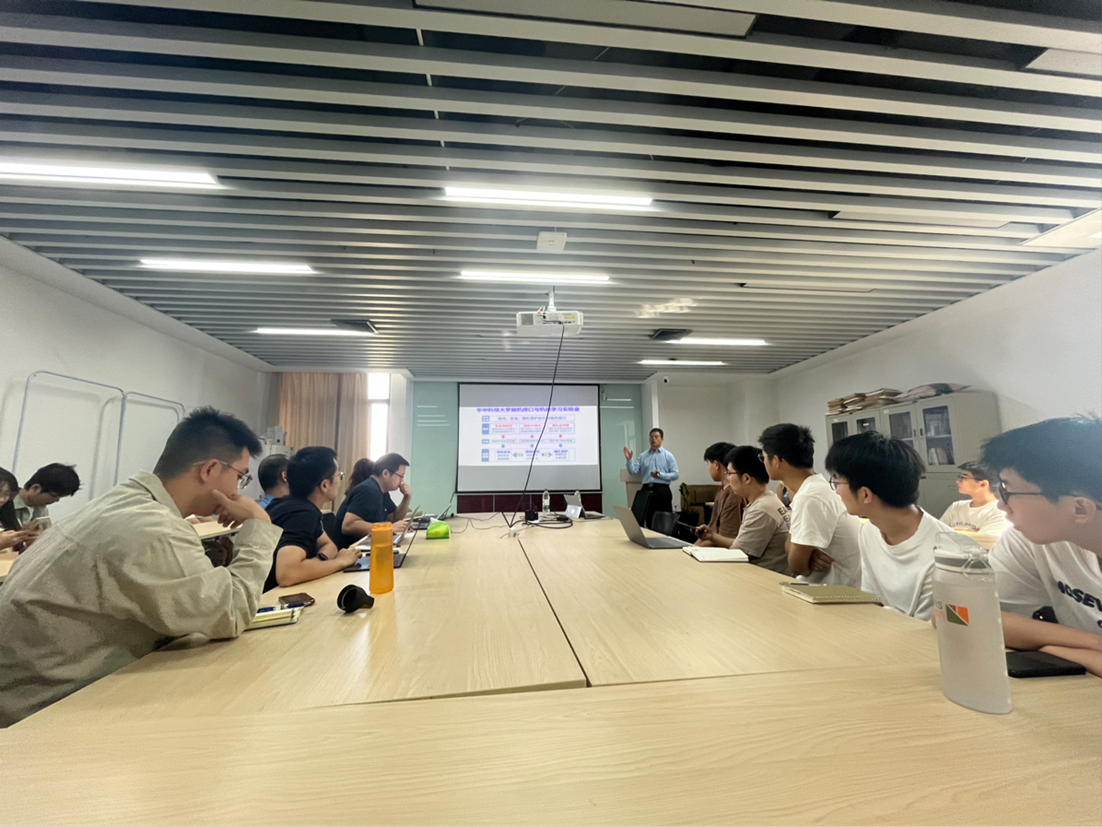At the invitation of Professor Guo Dan from the Department of Intelligent Science and Technology at our university, Professor Wu Dongrui from the School of Artificial Intelligence and Automation at Huazhong University of Science and Technology delivered an academic lecture titled "Machine Learning in Brain-Computer Interfaces" on the morning of September 29, 2024. The event took place in Conference Room 902, Building A, Science and Education Tower, Feicui Lake Campus, and was chaired by Professor Guo Dan. Teachers and students from related fields across the university attended the lecture.
During the session, Professor Wu Dongrui shared his team's latest research findings in areas such as precise decoding, adversarial security, and privacy protection within brain-computer interfaces, shedding light on cutting-edge advancements in the field. He began by introducing brain-computer interfaces, their classifications, the current state of research, and the challenges they face. He then elaborated on topics such as Euclidean alignment and label alignment in brain-computer interfaces, the complete process of transfer learning in this domain, constructing fuzzy classes through fuzzy sets to address generalization in regression problems, and employing channel inversion data augmentation or cross-species modal data to expand data volume for training large models.
Professor Wu also discussed the application and promotion of these research outcomes, including related competitions, invention patents, and practical implementations. He highlighted the efforts of his team in establishing the Joint Laboratory of Intelligent Perception and Computing to foster industry-academia collaboration. Notable projects include assisting Ant Group in developing emotional brain-computer interfaces using EEG and eye movement signals for emotional computing, conducting ECG-based health research for Huawei, and server failure prediction for Alibaba Cloud. These applications underscore the vast potential and innovative prospects of brain-computer interface technology in real-world scenarios.
Following the lecture, participants engaged in an active Q&A session, discussing key topics with Professor Wu. These included the collection and reverse generation of brain-computer data, adversarial attacks on brain-computer data, the application of physiological signals (such as those from brain-computer systems) in emotional computing, and the current status and future development of large-scale brain-computer models. The exchange fostered valuable academic dialogue.
This lecture provided faculty and students with fresh insights into the field of brain-computer interfaces and explored innovative possibilities for practical applications. It offered meaningful guidance for research and practice in related areas, leaving participants with a deeper understanding and inspiration for future exploration.

 TOP
TOP